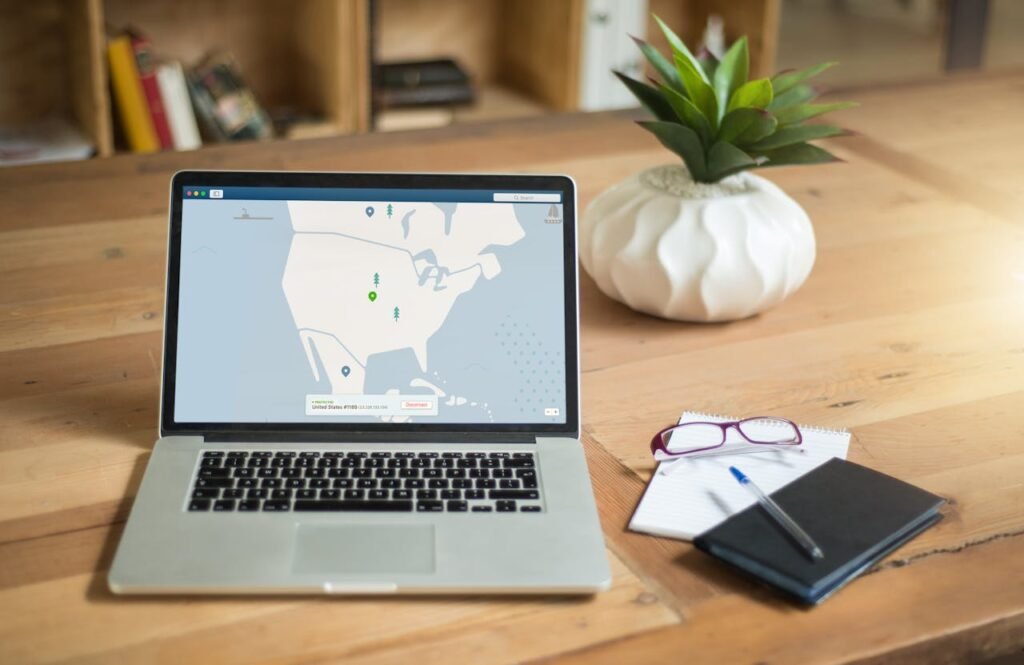Our information, personal information, is always already at risk, whether it comes from a data thief, a hacker, or even our internet service provider, in the enormous expanse of the digital world. But one powerful tool that is going to give you the assurance that is laden with sensitivity in this battle is a Virtual Private Network aka VPN. Just as a shield protects the warrior in battle, the same way a VPN is a wall of defense between you and the internet’s hazards.
What is a VPN and How Does it Work?
Consequently, all your internet traffic, when connected to any VPN server, gets encrypted and passes through this tunnel in reality, making interception of your data flow almost practically impossible. At this time, the VPN server also changes your IP address to conceal your location and identity with its IP address. So, websites, advertisers, and not even your ISP can track your activities.
Benefits of Using a VPN
1. Increased Online Privacy and Security
The primary reason for using a VPN is so that one can maintain their online privacy. A VPN ensures that about your personal information, it maintains invisibility by data encryption and masking your actual IP address. This is most important with public Wi-Fi networks that are primarily open and susceptible to malicious attacks. Using a VPN, one can browse the web, check their email, or perform even more risky tasks, for example, log onto their internet bank account without any fear that somebody might intercept their line of communication.
2. Unblocked Geo-Restricted Content
Also, an essential advantage that a VPN would have granted is that the user would have been able to access material from areas where there was a restriction. Many streaming services, like Netflix and Hulu, have different libraries of content based on a user’s location. Connecting to the server in any other country, the user bypasses this kind of geo-restriction, thus increasing the variety of movies, TV shows, and other pieces of access to content.
3. Bypass Internet Censorship and Restrictions
In some other jurisdictions, the government goes a level higher to prevent extensive internet censorship, whereby access to particular websites and services is denied. A VPN thus ensures that a person goes around those restrictions because, in essence, one is usually a resident in a country that encourages the liberal use of the internet. Therefore, this is handy for journalists, activists, or people needing to access information that might be hindered in their countries.
4. Secure Remote Work
Remote work has been on the rise, and now people tend to access their company’s network from home and on the go. A VPN would give you a secure connection with your office network. It will allow you to secure sensitive business data from a possible breach. Most business hoards of VPNs offer more hyper-features for security purposes. Features include a way of managing multi-user accounts.
5. Enhanced Online Gaming Experience
Online gaming mainly comprises playing against servers located in remote corners of the world. This leaves the accounts on sale very likely with slow connections and high latency. A VPN server usually should be able to connect to a closer server, minimizing the lag and increasing the gaming experience. Besides, a VPN will protect you from various DDoS and other malicious activity sent your way.
Select the Right VPN
With so many VPN providers available it is difficult to know which one to choose. Here are some key factors to consider when selecting a VPN:
- Security and Privacy: Look for some VPN powered by robust encryption, such as AES-256, and with a strict no-log policy—meaning data is neither stored nor shared.
- Server Network: The provider should have a vast server network located around the world to ensure quick connections and leading ability to bypass geo-restrictions.
- Ease of Use: A VPN should have user-friendly apps available for all your devices in different shapes and sizes, easily set and ready to go out of the box.
- Customer Support: Find a VPN that provides reactive customer support —24/7 live chat or e-mail help is the best.
- Pricing: There are free VPNs out there, but they tend to be quite limiting or offer hardly any guarantees of total privacy. An excellent paid VPN service will provide the best security and performance combination.
You can go for reputable service providers like Surfshark, NordVPN, and ExpressVPN.
Potential Disadvantages of VPNs
While there are so many benefits to using a VPN, a few watch-outs include:
- Slower connection speeds: Because it routes through another server, your data causes Internet connectivity at slightly slow speeds on a VPN.
- Compatibility Issues: Some sites and certain services block VPN traffic. Endl, therefore, you might end up being limited or not having access to certain content.
- Legal Concern: In some countries, the use of VPNs is strictly regulated or banned. Always check the local laws concerning the use of VPNs, especially when traveling.
Nowadays when we all use the internet and provider our information in several ways online, using a VPN as a shield is not only important, but necessity. If you don’t want to use it on trusted networks, but always rely VPN when using public Wi-Fi.











